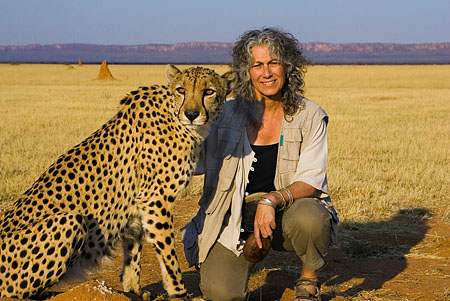Top 10 Careers you can Pursue with an Enviromental science Degree

The world needs more people who understand the environment, and those with an environmental science degree are in high demand. A degree in this field can open doors to many careers where you can make a difference. If you’re curious about how to use your environmental science degree, here’s a closer look at some rewarding job options that offer the chance to work on real-world problems, from protecting wildlife to improving air quality.
1. Environmental Scientist
Environmental scientists work to protect nature and human health by studying different types of pollution and finding ways to reduce harm to ecosystems. These scientists often analyze samples of soil, water, or air to check for pollutants. Based on their findings, they advise on regulations and policies that protect communities from environmental hazards. This role is perfect if you enjoy research and problem-solving and want to contribute to making our environment safer.
2. Ecologist
Ecologists focus on understanding ecosystems and the relationships between plants, animals, and their environment. They may study how a certain animal population affects an ecosystem or assess how human activities like deforestation impact biodiversity. Ecologists use their findings to help manage and conserve natural resources, making their work crucial for protecting endangered species and preserving habitats. If you love the outdoors and enjoy observing nature, this role might be a great fit.
3. Environmental Consultant
Companies and governments hire environmental consultants to get advice on how to operate in ways that are environmentally responsible and compliant with regulations. Consultants perform environmental assessments to make sure that businesses aren’t harming the environment and help them create strategies to reduce their carbon footprint. This career path is ideal for people who enjoy problem-solving and are comfortable communicating complex information in a simple way.
4. Wildlife Biologist

Wildlife biologists study animals and their habitats to understand how they live and how they are affected by environmental changes. Their research can involve tracking animal populations, studying migration patterns, and developing conservation plans. Wildlife biologists often work outdoors in fields, forests, or wetlands. This career is for those passionate about wildlife and committed to protecting natural habitats from threats like deforestation and climate change.
5. Sustainability Specialist
In recent years, many companies have hired sustainability specialists to help reduce waste and promote green practices. These professionals work to create and enforce policies that minimize environmental impact, such as recycling programs or energy conservation plans. As a sustainability specialist, you would be at the forefront of creating sustainable solutions that align with a company’s goals. This role is perfect if you’re organized, detail-oriented, and passionate about promoting eco-friendly practices.
6. Climate Change Analyst

Climate change analysts study how climate shifts impact ecosystems, agriculture, and urban areas. They analyze weather data and create models to predict climate trends, helping governments and organizations develop strategies to combat climate change. These analysts play a key role in proposing solutions to reduce carbon emissions and mitigate climate risks. If you’re interested in working with data and want to address global challenges, this role could be very fulfilling.
7. Environmental Educator

Environmental educators help others understand environmental issues and why they matter. They often work in schools, parks, or nature centers, where they teach people of all ages about topics like pollution, conservation, and sustainability. Educators may organize field trips, conduct workshops, and create educational materials. This career is a good choice if you enjoy sharing knowledge, working with people, and inspiring others to care for the planet.
8. Environmental Health Specialist

Environmental health specialists examine how environmental factors, such as air and water pollution, affect human health. They work with public health officials to investigate cases of contamination or disease outbreaks and develop strategies to prevent future issues. These specialists play a critical role in keeping communities safe from environmental hazards. This job is well-suited for those with a strong interest in public health and a knack for research and analysis.
9. Conservation Scientist

Conservation scientists manage the use of natural resources in forests, parks, and other protected areas. They work to ensure that resources are used responsibly and sustainably. For example, they might create plans to prevent overlogging or overfishing in a specific area. Conservation scientists often collaborate with government agencies and landowners to implement strategies that preserve natural resources for future generations. This career is perfect if you’re passionate about natural resource management and environmental advocacy.
10. Environmental Policy Analyst

Environmental policy analysts research and evaluate policies that impact the environment, providing governments and organizations with insights on how to create effective environmental laws. They study issues like pollution, waste management, and energy policies to understand the best ways to protect the environment. This role is ideal if you enjoy research and want to influence policies that shape the future of environmental protection.
Conclusion
An environmental science degree can open up many paths, each with its own unique impact. From analyzing data in labs to educating communities, these roles allow you to contribute to a healthier, more sustainable planet. By finding a career that aligns with your skills and interests, you can play a crucial role in addressing environmental issues and make a meaningful difference in people’s lives.
Each career listed offers the chance to tackle real-world environmental challenges and contribute to positive change. Whether you prefer hands-on fieldwork, data analysis, or advocacy, there’s a career path in environmental science that fits your strengths.





